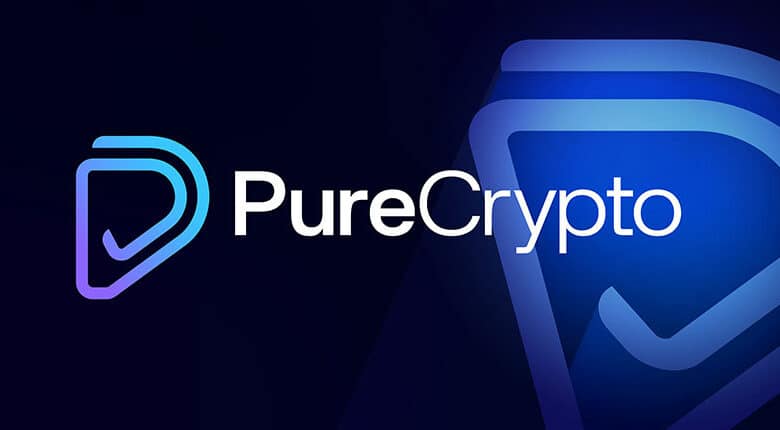Unveiling the Advantages of Pure Cryptocurrencies

Cryptocurrencies have revolutionized the financial landscape, offering innovative solutions that challenge traditional monetary systems. These digital assets operate on blockchain technology, providing a decentralized and secure way of transferring value. Pure cryptocurrencies, devoid of any ties to physical assets, have emerged as a compelling option for both investors and users. In this article, we’ll delve into the distinct advantages of pure cryptocurrencies, highlighting their potential to reshape the way we perceive and use money.
The Rise of Pure Cryptocurrencies
The advent of Bitcoin in 2009 marked the beginning of the era of cryptocurrencies. While some cryptocurrencies are backed by physical assets or pegged to traditional currencies, pure cryptocurrencies stand on their own intrinsic value. They are not bound by geopolitical boundaries or central authority control, offering a level of financial sovereignty previously unimaginable.
Decentralization: Empowering Individuals
Pure cryptocurrencies operate on decentralized networks, meaning no single entity has absolute control over the currency. This empowers individuals by removing the need for intermediaries like banks. Transactions occur directly between users, enabling greater financial autonomy and minimizing the risk of censorship or account freezes.
Transparency and Security: The Blockchain Advantage
The underlying technology of pure cryptocurrencies is blockchain, a distributed ledger that records all transactions in a transparent and tamper-resistant manner. Each transaction is cryptographically linked to the previous one, forming an unchangeable chain. This transparency reduces the potential for fraud and enhances security, increasing trust in the system.
Global Accessibility: Redefining Financial Inclusion
One of the most profound advantages of pure cryptocurrencies is their potential to extend financial services to the unbanked and underbanked populations worldwide. All that’s needed is internet access, enabling individuals who lack traditional banking resources to participate in the global economy.
Low Transaction Costs: Efficiency in Transactions
Traditional financial transactions often involve a web of intermediaries, leading to substantial fees. Pure cryptocurrencies streamline this process, reducing transaction fees significantly. This efficiency benefits both microtransactions and large-value transfers, making cross-border payments faster and more economical.
Anonymity and Privacy: Balancing Financial Freedom
While transactions on a blockchain are public, the identities of the parties involved are pseudonymous. This offers a degree of privacy, appealing to those who value discreet financial transactions. However, the balance between anonymity and regulatory compliance remains a topic of debate.
Cross-Border Transactions: Simplifying International Payments
Pure cryptocurrencies eliminate the complexities of currency conversion and intermediaries in cross-border transactions. This simplification accelerates the pace of international trade and fosters economic cooperation between countries.
Immutable Records: Prevention of Fraud and Tampering
Blockchain’s immutability ensures that once a transaction is recorded, it cannot be altered. This feature guards against fraudulent activities and tampering, creating a high level of trust in the system.
Ownership and Control: Self-Custody of Assets
Pure cryptocurrencies allow users to have complete ownership and control over their digital assets. Private keys grant access to the funds, removing the need to rely on third parties to manage and secure assets.
Diversification of Investment: Expanding Portfolio Opportunities
For investors, pure cryptocurrencies present a new avenue for diversification. These digital assets are relatively uncorrelated with traditional markets, offering the potential to enhance portfolio resilience and return.
Limitations to Consider: Volatility and Regulation
Despite their advantages, pure cryptocurrencies can be highly volatile, causing concerns for risk-averse individuals and investors. Additionally, the regulatory landscape is still evolving, impacting the legality and adoption of these assets.
Environmental Considerations: Energy Consumption Debate
The energy consumption of blockchain networks, particularly Proof of Work-based cryptocurrencies, has sparked debates regarding their environmental impact. Some argue that the technology’s benefits outweigh its energy drawbacks, while others call for more sustainable solutions.
The Future Potential: Evolving Use Cases
As technology evolves, so do the potential applications of pure cryptocurrencies. From decentralized finance (DeFi) platforms to non-fungible tokens (NFTs) and beyond, these digital assets continue to push the boundaries of innovation.
Conclusion: Embracing the Promise of Pure Cryptocurrencies
Pure cryptocurrencies are rewriting the rules of finance, introducing a new era of decentralization, transparency, and accessibility. While challenges persist, their potential to democratize financial services and redefine the concept of money cannot be ignored.
FAQs
Q1: How do pure cryptocurrencies differ from traditional currencies?
- Pure cryptocurrencies are digital assets that operate independently of traditional banking systems and governments, offering greater financial autonomy.
Q2: Are pure cryptocurrencies regulated?
- The regulatory status of pure cryptocurrencies varies by jurisdiction. Some countries have embraced them, while others have imposed restrictions.
Q3: What’s the main advantage of blockchain in the context of pure cryptocurrencies?
- Blockchain ensures transparency and security by recording all transactions in an immutable and tamper-resistant manner.
Q4: Can I use pure cryptocurrencies for everyday purchases?
- While adoption is growing, the use of pure cryptocurrencies for everyday purchases is still limited compared to traditional currencies.
Q5: What does the future hold for pure cryptocurrencies?
- The future of pure cryptocurrencies is promising, with ongoing innovation leading to new use cases beyond traditional finance.




